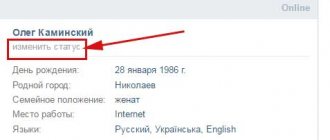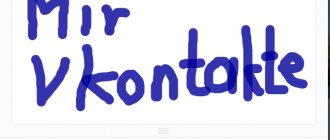With the advent of the Internet, many slang terms, abbreviations, abbreviations, and emoticons appeared to make communication easier and speed up typing. The list of words in Internet slang is growing every day. One of the most popular of these is lol, widely used in text messaging and social media. Let's look at what lol is and when it should be used.
What does LOL mean?
What does the word LOL mean in youth slang on the Internet?
Within the Internet, not only neologisms are born and old words are returned to use, but entire phrases appear that were not in the language before.
Most often, of course, this happens in the English-language segment of the network - and it was within it that today’s topic of conversation was born.
This article will continue to introduce you to Internet slang and its decoding - and this time the text is dedicated to the phrase that absolutely everyone uses now - this is LOL, or LOL.
The history of LOL
Oddly enough, this Internet meme did not even come from the World Wide Web - but much earlier, back in the days of the extreme prevalence of SMS messages and the appearance of the first telephone models.
The fact is that at that time communications were quite expensive, and sending long messages was extremely unprofitable.
Leet came into use - a fictitious language based on the maximum reduction of words without loss of meaning.
Later, the wave of popularity of this language also covered the Internet, where young people began to communicate in the same way.
Now this expression has gone beyond the boundaries of Internet culture and the sphere of instant messages, and is actively heard in the companies of young people who use it in their speech.
What does this abbreviation mean?
It is precisely part of this language that is the expression LOL - which compresses an entire phrase into three letters - laugh out loud - that is, a very loud laugh.
The Russian analogue is LOL, which is not deciphered in any way, and is a pure transliteration of a foreign phrase.
Where and how is this phrase used?
To answer briefly - now absolutely everywhere, even in youth slang in real life.
This phrase has become so popular among people that it is used on social networks, for example, VKontakte, Mail.ru and others.
LOL is used very simply - in response to something that made you laugh.
The fact is that emotions cannot be conveyed in text, and this expression is intended to smooth out this fact a little.
If you laughed a lot at something, then this is exactly what you should write in a message to a friend who sent you a funny text or in a comment.
It is also worth noting that recently LOL can be used in a negative context - for example, when a person tries to ignore another interlocutor in a dispute, or when he simply does not want to respond to a message.
How to use the laughing acronym correctly?
The expression is used to a greater extent on social networks and instant messengers, especially in VK comments. During personal correspondence, a rich response with a detailed description of experiences will be much more pleasant for the recipient than a short phrase of 3 letters. But for commenting on funny situations of strangers, LOL is ideal. And the meaning of the word is familiar to most users.
By the way, to enhance the effect of the acronym, a picture is often attached to the statement. Here is a typical ma'am for this abbreviation:
Since the acronym LOL describes their reaction to other people's failures, this expression gradually began to be used by the culprits of loud laughter themselves. And those who refused self-criticism received it in full:
In this, the meaning of LOL approaches an offensive word. Over the past few years, the acronym has increasingly acquired just such a negative connotation, meaning an unlucky, stupid and insolvent person. Users who see the abbreviation for the first time in the comments in a negative way and themselves begin to call others LOLs. Thus, LOL is both a verb, an adjective, and a noun at the same time. I hope you understand what LOL means.
Derivations from the abbreviation
In the Russian segment of the Internet, the phrase “lal” is currently common instead of the standard LOL.
This is where, for example, the derivative “lalka” comes from, which is used to ridicule someone, usually a stupid interlocutor who is confident in his own erroneous arguments.
In addition, two abbreviations are extremely common in the West:
- ROFL – which stands for rolling on floor laughing, or “laughing while rolling on the floor.” This is a more powerful version of the word
- LOL, and usually they write it when they especially liked the joke. In Russia, this phrase is not very common, but among some bloggers there is a derivative word form “roflyanka” or “roflyanochka”.
- LMAO is an even less popular abbreviation in the Russian-speaking part of the World Wide Web, which is used by a very small number of people. It means laugh my ass off - that is, “I laugh until my stomach hurts.” One of the Russian-language uses of this phrase is the “ayyy lmao” meme, which is known to an extremely small number of people.
In general, this is all that can be said about this expression. It is extremely popular and is often used both on the Internet - chats, VK, and other places, and in real life.
Do you talk to your friends this way?
Other options
In conversations, synonyms for the word "lol" and other abbreviations are used to express shades of laughter, which have turned into memes:
- LUL is the phonetic spelling of lol, widely used in the Twitch.tv gaming community. Often used instead of hahaha;
- LOLZ – plural of lols, where the letter Z at the end replaces the S. Alternatively, LOLOLOL is used, where the word is repeated several times in a row for added humor;
LOLZ – plural of “lol” - LULZ – used to denote malicious laughter at the victim of a prank. Its use is associated with the emergence of Internet trolls. According to a New York Times article about internet trolling, lulz refers to the joy of upsetting another person's emotional balance. Closely related to this is the slang kekeke (sarcastic laughter), which can be perceived as an insult;
- TROLOLOL – formed by combining the word “troll” and repeating “lol”. Indicates that the joke is trolling;
TROLOLOL means trolling - LMAO (full form - Laugh My Ass Off) - “I laugh my ass off”, “I laugh until I cry.” Expresses wild, uncontrollable laughter, which can be replaced with the word “laughing”;
- ROFL, or Rolling on Floor Laughing - rolling on the floor laughing. Rofl expresses stronger emotions than lol, because the person is so funny that he sways on the floor.
Where can I meet lol
If we do not imply that we will be talking about the mysterious “lol” on the social network VKontakte, then what options might come to mind?
LOL dolls will undoubtedly appeal to little girls and their parents.
These are small dolls with accessories in balls, capsules and other variations.
Many schoolchildren, their mothers and fathers, are reminded every second of the GDZ LOL website, where all the answers to textbook assignments are posted.
These two options will be the most common after lol on VKontakte.
If everything is clear with dolls and a website with homework, then when they come across the word lol in VK, many do not understand what they are talking about.
And, if your job, profession, or additional income is related to the Internet, then you simply need to understand every single detail, even the smallest details.
Where did it start?
This word can be replaced with a laughing emoticon. And there are even stickers with the written word itself and an emoticon together.
There are a lot of options for stickers on the topic of lol, since the format of communication using stickers and emoticons is gaining momentum even among the older generation.
I note that initially this topic was more widespread in youth circles.
So, laughing emoji. This symbol stands for “laughing out loud.” Translated from English, it means “to laugh out loud.”
Well, you are attentive, did you understand where LOL came from?
That's right, these are the first letters of the English words from this expression.
This abbreviation is widely used in Internet forums and chat rooms, and today is perceived as an independent word.
I repeat, for the younger generation there will be no difficulties with the meaning of this word; they are, so to speak, its first users.
Young people don’t even think about the origin of this abbreviation; they type it into their gadgets and devices every day. But they give the right meaning.
But people of the older generation do not immediately understand what we are talking about.
A Russian synonym for this expression can be considered “laughing,” which can also often be found on the VK network and many others.
Some users may use an abbreviation similar in meaning to ROTF, which means “rolling on the floor.”
Where did the word LOL come from?
The word is written exactly like this: in capital letters, since it is an abbreviation. There are several known phrases that form a popular abbreviation:
- lots of laughs;
- laugh loud;
- laughing og loud.
All three expressions carry a similar semantic load. Rough translation: laugh a lot, laugh loudly, laugh. When compared with the Russian synonyms of these meanings, the expression “laughing” and “yaplakal” suggests itself. In addition, the following phrases can be considered similar in meaning and meaning to the word LOL: laughing under the table, rolling on the floor, holding my stomach and other phrases that describe a similar emotional state.
Spread of a popular abbreviation
The word “lol” appeared only at the beginning of the 21st century. In 2003, a group of students conducted a study that found that 0.6% of all words used online were the abbreviation “LOL.”
In 2008, this figure rose to 2.4%. In 2011, "LOL" was officially added to the Oxford Dictionary.
In 2006, a comedy called “LOL” was released in France.
An example of using the abbreviation LOL
The word "lol" is gaining more and more new meanings as it spreads.:
- The very first meaning is loud, strong laughter. LOL , what a funny joke!
- Those who are not very well versed in the Internet environment believe that the word “lol” is consonant with the well-known Russian curse and carries the same meaning.
- Sometimes the word "lol" means "buffoon" and is also an insult. The use of the word “lalka” is similar. You are lol.
- In general, “lol” can replace any insult.
- “Lol” can sometimes convey irony or ridicule. Her eyebrows started to flow, lol.
- "Lol" can also express laughter.
- Sometimes, extremely rarely, “lol” is found as a filler word.
- A person can respond “lol” to a joke out of respect for the interlocutor, even when he is not funny at all.
Sources:
https://seoslim.ru/voprosy-i-otvety/chto-takoe-lol.html https://webnub.ru/otvety-na-voprosy/chto-takoe-lol-v-vkontakte/ https://eng911 .ru/words/sleng/sokrashenie-v-internete-lol.html
What does LOL mean in online correspondence?
Experienced Internet users often use the word “lol” in their speech. And not only in written form, but also in oral form, which confuses older people. The word itself does not carry anything bad.
Abbreviation LoL
There are several variants of decoding for this abbreviation, and they are all close in meaning:
- Laughing out loud is the most common decoding. Translated from English it means “out loud, laughing loudly”
- Laugh out loud - laugh loudly, out loud
- Lots of laughs - a lot of laughter.
That is, the word “lol” is used to express laughter.
How to pronounce?
There is nothing difficult about pronouncing the word “lol”. As it is written, so it is read
.
However, on the Internet you can find many distorted versions of this word, which also mean laughter:
- Lawl, Lal (pronounced “lal” in Russian).
- ROTFL, ROLF - abbreviations that stand for “rolling on the floor laughing” (rolling on the floor laughing).
- Rolf is a derivative of ROLF.
- ROFLOL is also an acronym, it stands for “Rolling On the Floor Laughing Out Loud” (I roll on the floor and laugh).
- Lil - Ukrainian version, pronounced "lil" in Russian.
- Lel is the least popular option.
- Kek is a popular word among gamers.
While typing, a person may mistype or forget to change the layout, so the word “lol” sometimes takes quite unusual forms, for example:
The word “ololo”, which is a derivative of “lol,” is also popular on the Internet.
But the list of its meanings is much wider:
- Laughter.
- Sarcasm, irony.
- Astonishment.
- To attract attention.
- Insult.
- Joy.
- Designation of any object.
Where is it used?
As mentioned above, the word “lol” is used in most cases on the Internet. And not on serious resources, but in chats, conversations, social networks, full of Internet jargon.
Most often, the word “lol” is used by schoolchildren or young people under 25 years old.
Sometimes “lol” can be heard in spoken language - this is how Internet culture seeps into real life.
Do you know that:
- In the Estonian dictionary you can find the word loll, which means “fool, fool”
- In other languages, Danish and Dutch, the word lol means "fun" and is literary.
- In Welsh, lol translates to "stupidity"
Spread of a popular abbreviation
The word “lol” appeared only at the beginning of the 21st century. In 2003, a group of students conducted a study that found that 0.6% of all words used online were the abbreviation “LOL.”
In 2008, this figure rose to 2.4%. In 2011, "LOL" was officially added to the Oxford Dictionary.
In 2006, a comedy called “LOL” was released in France.
An example of using the abbreviation LOL
The word “lol” is gaining more and more new meanings as it spreads:
- The very first meaning is loud, strong laughter. LOL, what a funny joke!
- Those who are not very well versed in the Internet environment believe that the word “lol” is consonant with the well-known Russian curse and carries the same meaning.
- Sometimes the word "lol" means "buffoon" and is also an insult. The use of the word “lalka” is similar. You are lol.
- In general, “lol” can replace any insult.
- “Lol” can sometimes convey irony or ridicule. Her eyebrows started to flow, lol.
- "Lol" can also express laughter.
- Sometimes, extremely rarely, “lol” is found as a filler word.
- A person can respond “lol” to a joke out of respect for the interlocutor, even when he is not funny at all.
Most often, “lol” does not mean anything bad and is not an insult, but simply means laughter. There are a lot of other popular abbreviations on the Internet that people use to reduce typing time.
eng911.ru











